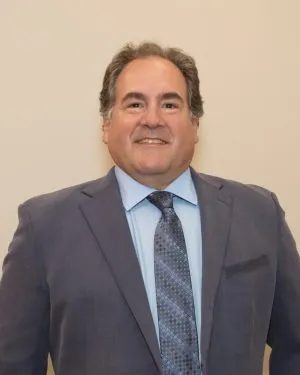Serving patients throughout West Michigan.
Teeth may need to be extracted for several reasons, including:
While preserving natural teeth is always the goal, extraction may be the most appropriate course of treatment when other options are not viable. Your surgeon will also discuss tooth replacement solutions, if necessary, to support long-term oral health.
Tooth extraction is performed under local anesthesia or other sedation options, depending on your comfort level and case complexity.
During the procedure, pressure is normal, but you should not feel pain. If discomfort arises, let the surgical team know right away.
Some teeth require sectioning. This is a very common procedure done when a tooth is so firmly anchored in its socket or the root is curved and the socket can’t expand enough to remove it. The doctor simply cuts the tooth into sections then removes each section one at a time.
Bleeding
Some bleeding may occur. Placing a piece of moist gauze over the empty tooth socket and biting down firmly for 45 minutes can control this.
Blood clots that form in the empty socket
This is an important part of the healing process and you must be careful not to dislodge the clot.
Swelling
If swelling occurs you can place ice on your face for 10 minutes and off for 20 minutes. Repeat this cycle as you feel necessary for up to 24 hours.
Pain and Medications
If you experience pain you may use non-prescription pain relief medications such as acetaminophen or ibuprofen.
Eating
For most extractions just make sure you do your chewing away from the extraction site. Stay away from hot liquids and alcoholic beverages for 24 hours. A liquid diet may be recommended for 24 hours.
Brushing and Cleaning
After the extraction, avoid brushing the teeth near the extraction site for one day. After that, you can resume gentle cleaning. Avoid commercial mouth rinses, as they tend to irritate the site. Beginning 24 hours after the extraction you can rinse with salt water (1/2 teaspoon in a cup of water) after meals and before bed.
Dry Socket
Dry socket occurs when a blood clot becomes dislodged, delaying healing. Symptoms include dull, persistent pain 3–4 days after surgery and a noticeable bad taste or breath.
To prevent this:
If symptoms of dry socket develop, contact our office. Our team can apply a medicated dressing to ease discomfort and support healing.
Healing
After a tooth has been extracted, there will be a resulting hole in your jaw bone where the tooth was. In time, this will smooth and fill in with bone. This process can take many weeks or months. However, after 1-2 weeks you should no longer notice any inconvenience.

Dr. Nalley moved to Grand Haven, MI at 9 years of age after his father was stationed here by the U.S. Coast Guard. This has been his hometown ever since. He graduated from Grand Haven High School. His undergraduate studies were completed at Hope College in Holland, MI. He received his dental training at the University of Michigan where he received the Chalmers J Lyons Award which is given to the top oral surgery student of the graduating dental class.
He then completed his residency in Oral and Maxillofacial Surgery at The Detroit Medical Center (DMC) / Wayne State Medical School. In addition to his time spent treating patients, Dr. Nalley has also been very involved in various surgical organizations and committees.
He is a member of the Michigan Society of Oral and Maxillofacial Surgeons and was past president of the Great Lakes Society of Oral and Maxillofacial Surgeons. He is board certified by the American Board of Oral and Maxillofacial Surgeons and The National Dental Board of Anesthesiology. He is also a fellow of the American Association of Oral and Maxillofacial Surgery.